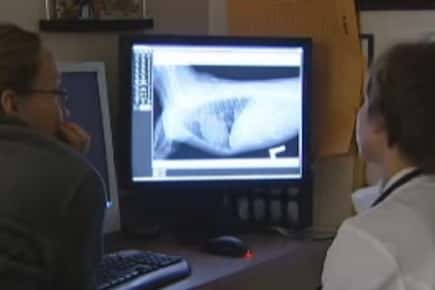
Pets are living longer thanks to advances in veterinary care, diagnostics, and earlier intervention. But the key to enjoying our "senior" pets lies not only in extending their life span, but in helping them enjoy their later years to the fullest.
Like people, dogs and cats are prone to debilitating ailments as they age. Kidney failure, heart disease, arthritis, dental disease, cancer, and cognitive dysfunction can occur during the normal aging process. In the past, because many diseases weren't diagnosed until advanced stages, veterinarians could do little more than make a pet's golden years a little more comfortable by treating the symptoms of age-related illness. If the pet was lucky, the problems would progress slowly. Most pet owners just accepted the fact that their four-legged friends were just going to live a relatively short life, get old, and pass on.
But thanks to technical advancements in modern veterinary medicine, surgery, diagnostics and nutrition, not only do pets live longer but their quality of life has increased dramatically as well.
One example follows human medicine in the development and use of the new generation of non-steroid anti-inflammatory drugs. These drugs help the aches and pains of many senior pets while keeping side effects to a minimum.
Many age related problems are still seen as inevitable, but the attitudes of both veterinarians and pet owners have changed. The belief now is that "age is not a disease", and veterinary medicine is putting increased emphasis on senior pet health through preventative wellness programs.
In general, some early warning signs that your pet may be having a problem are:
- Increased thirst and urination
- Loss of bladder control or breaking house training
- Repeated vomiting
- Bad breath, drooling or changes in appetite
- Excessive panting or exercise intolerance
- Lumps or changes in areas of skin color
- Change in appetite - eating more or less than usual
- Changes in behavior such as "spacing out" or excessive whining
- Unusual bowel habits - diarrhea or constipation
- Changes in body weight - gaining or losing weight
Watch pets closely and report any unusual behavioral or physical problems to your veterinarian immediately. Work with your veterinarian and develop a specific senior wellness program for your pet's individual needs so that your special friend can enjoy aging gracefully.
